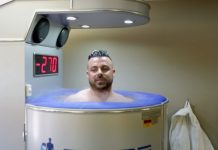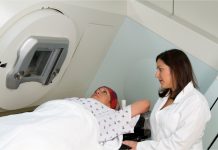Cancer can be a life altering and quite devastating condition, not just for the cancer sufferer but all of those close to them. For those who have triumphed over this disease; and the number of cancer survivors is increasing all the time; Cancer Rehabilitation becomes vital so that the cancer survivor can live as full and normal a life as possible.
The ultimate aim of cancer rehabilitation is to help the person achieve the best physical, psychological, social and vocational functioning given the fact that the disease and its treatment typically mean restriction of many activities and impaired wellbeing.
Various individuals such as physiatrist, psychologist, oncology nurse, physical therapist, social worker, vocation counselor, occupational therapist, nutritionist, chaplain, those with a health information management degree and so on may be involved in this process of rehabilitating the cancer survivor.
Physiatrist
The physiatrist develops a plan to offer support and therapeutic help in coordination with the other members of the team as well as the family, based on the prognosis of the cancer – whether the patient is cured, in remission etc.
Oncology Nurse
The oncology nurse helps in rehabilitation by determining the specific needs of the patient, plans care, sources supplies needed for treatment, educates the family and caregivers about support and help for the patient after discharge and also educates the patient about self help so far as possible.
Occupational Therapist
The Occupational therapist trains the patient to be more self reliant with regard to work and leisure and also works on improving strength, physical coordination and other skills. When there is some amount of brain dysfunction, the occupational therapist works on improving perceptual and cognitive functioning.
Nutritionist
The nutritionist evaluates what nutritional deficiencies the patient has and tries to redress them and also determines the diet that is best suited to the particular needs of the patient. A person’s altered sense of taste, ability to swallow and caloric needs are taken into account.
Social Worker
The social worker performs important functions to help the patient transition to the community after hospital stay. The person’s financial resources, matters of insurance, disability compensation, social security and necessary procedures are other things that the social worker looks at.
Psychologist
The psychologist assesses the toll that cancer has taken on the cancer patient, both mentally and physically, their reaction to their illness or disability, panic, fear, anxiety, and so on. They help the person to cope emotionally with what they have gone through as well as come to terms with the way in which their life may have changed.
Vocational Counselor
A vocational counselor will help the person assess whether they will be able to return to their old job or whether they may be able to do a similar job in a reduced capacity. Evaluation of abilities, testing, and educational planning are other areas that the vocational counselor will look at. Possibilities of learning new skills or obtaining training anew may be looked at.
Chaplain
The chaplain or religious representative can help give a lot of succor to a cancer patient who has had an experience that forcefully reminded themselves of their own mortality. Spiritual guidance at such as time can be a great comfort for the cancer patient.

















